Top 10 Countries That Celebrate Christmas In January

Christmas, a globally cherished festival, captivates over 2 billion Christians and some non-Christians worldwide. While the festive spirit traditionally encompasses December, the primary celebration unfolds from December 24 to 26, a consensus among numerous nations. Remarkably, certain countries defy this norm, opting to observe Christmas in January or abstaining altogether.
Notably, Orthodox Christians in central and eastern Europe, along with global counterparts, mark Christmas on January 7. Dubbed Old Christmas Day, this unique celebration stems from a historical adjustment made when England and Scotland transitioned from the Julian to the Gregorian calendar in 1752. The calendar shift excluded 11 days, a change resisted by many, especially in rural areas. The Julian calendar remains relevant for some Orthodox Churches, aligning Christmas with January 7, a date valid only from 1901 to 2100 in the Gregorian calendar.
This January celebration holds significance as a period of reflection, inner contemplation, and healing in Eastern European countries. As the Julian calendar persists, the Gregorian date for Orthodox Christmas will transition to January 8, 2101, if the Julian calendar endures beyond 2100. This unique deviation in Christmas celebrations adds cultural diversity to the global tapestry of traditions.
Top 10 Countries That Celebrate Christmas in January
- Russia
- Egypt
- Ukraine
- Ethiopia
- Kazakhstan
- Georgia
- Macedonia
- Moldova
- Montenegro
- Armenia
1. Russia
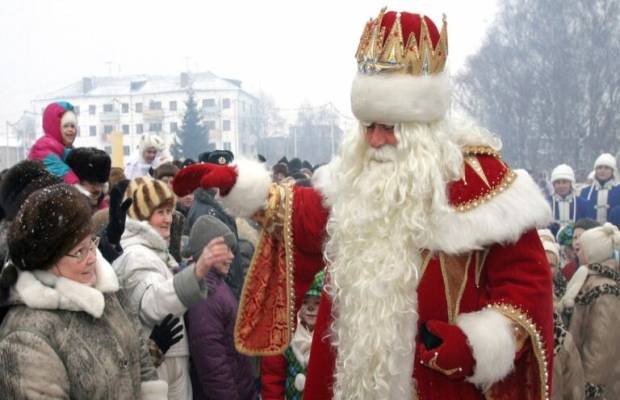
In Russia, the celebration of Christmas underwent a significant transformation during the Soviet era when open festivities were prohibited. However, since the dissolution of the Soviet Union in 1991, there has been a revival of Orthodox faith, leading to a resumption of Christmas celebrations. This resurgence, however, reflects a lingering influence from a time when religious observances were restricted, with New Year's assuming greater prominence compared to Christmas.
Christmas day in Russia is marked by distinctive traditions, featuring a substantial feast comprising roast meat, stuffed dumplings known as pierogi, and gingerbread for dessert. Grandfather Frost, the Russian equivalent of Santa Claus, plays a central role in the festivities, delivering gifts to children during New Year's rather than Christmas.
READ ALSO » Top 10 Countries That Don't Celebrate Christmas In The World
Contrary to the trend in many European countries celebrating Christmas in January, Russia stands out by maintaining its Christmas celebration on the conventional date, emphasizing its unique cultural practices. As a nation that did not openly observe Christmas during the Soviet era, Russia's contemporary festivities offer a blend of revived traditions and influences from a time when religious expressions were restrained.
2. Egypt

In Egypt, where around 15% of the population is Christian, the Coptic Orthodox Church observes Christmas uniquely. Celebrated on the 7th of January, the 43 days leading up to Christmas involve a special fast, where Coptic Orthodox Christians adhere to a vegan diet, abstaining from animal-derived products.
3. Ukraine

In Ukraine, Christmas follows the Julian calendar on 7 January for those of the Orthodox majority. However, Catholics and an increasing number of Western-inclined agnostics celebrate on 25 December. Traditional Ukrainian Christmas festivities commence on 6 January, according to the Julian calendar, and conclude on 19 January, known as Yordan, marking the Baptism of Jesus.
4. Ethiopia
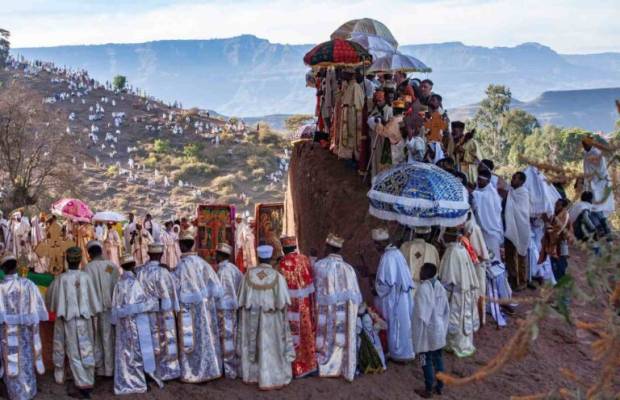
Ethiopia, like Egypt, embraces January for Christmas celebrations. With orthodox Christianity prevailing, the country boasts ancient religious sites and captivating landscapes. In Lalibela, where 13 rock-hewn churches grace cliffs, Christmas Eve on January 6 witnesses fervent worship and celebration. The festivities conclude at dawn on January 7, as Orthodox Christians disperse for home celebrations, leaving behind a tapestry of religious fervor and pilgrim gatherings.
5. Kazakhstan
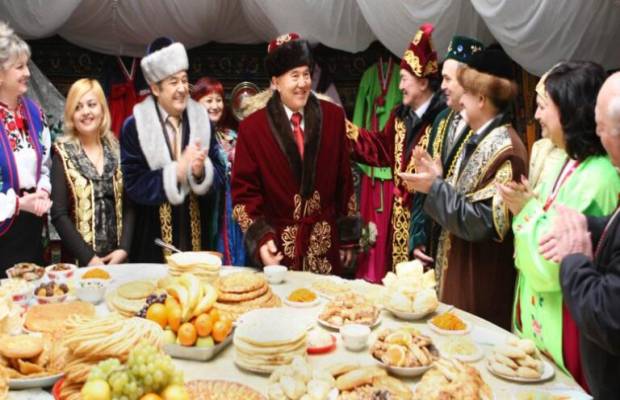
While Kazakhstan is predominantly Muslim, a small Orthodox Christian community observes Christmas on January 7th annually. Devout Kazakh Christians initiate a 40-day fast, avoiding meat and sometimes other food groups until the first star appears on January 6, marking the commencement of the celebration. This Central Asian nation stands among those celebrating Christmas in January, showcasing a unique blend of cultural diversity.
6. Georgia
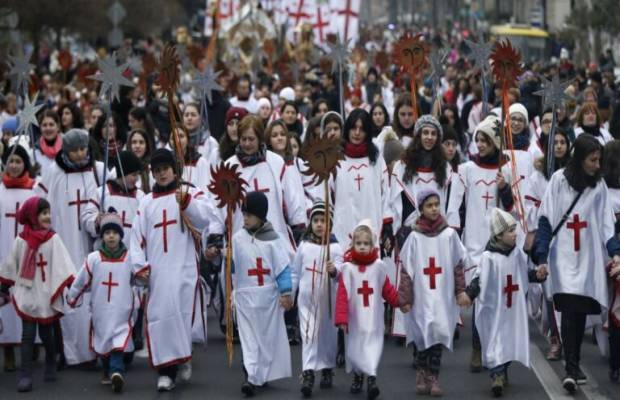
In Georgia, a traditional Christmas involves the vibrant Alilo procession, where parishioners dress up and parade through the streets while spectators distribute candy to children. The congregation celebrates the birth of Christ through extended church services on Christmas Eve, lasting until 4 am, followed by a return home for rest before continuing the festivities.
7. Macedonia
In Macedonia, the celebration of Christmas is a significant event starting on Christmas Eve, observed on January 6, and continuing through Christmas Day on January 7. Unlike much of the world, Macedonia follows the 14-day-ahead Julian calendar, emphasizing the cultural and religious distinctiveness that characterizes the nation's Christmas festivities.
8. Moldova
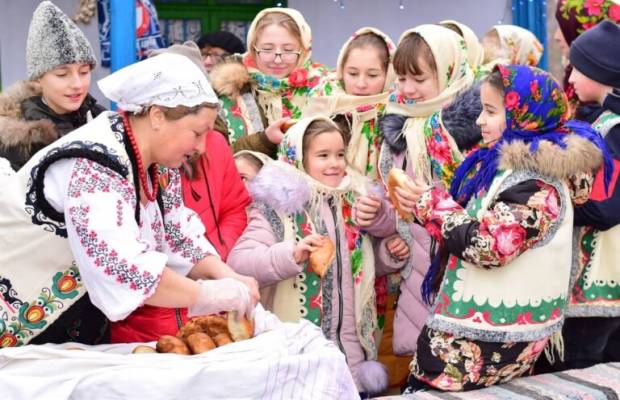
READ ALSO » The History Of Father Christmas And How He Came To Be
In Moldova, Christmas holds significance within its Orthodox culture, celebrated from the evening of January 6 through January 7. While Christmas is unquestionably essential in Western cultures, Moldova distinguishes itself by considering Easter as its major religious holiday. The proximity of Christmas and New Year's, often blending in celebrations, contributes to the distinctive character of Moldovan traditions. Notably, the decoration of the Christmas tree, predominantly done on New Year's Eve, is sometimes referred to as the New Year Tree. Santa Claus' gifts are also occasionally labeled as New Year gifts rather than Christmas gifts. The tradition of singing carols at Christmas adds a unique touch to Moldova's festive season.
9. Montenegro

Montenegro follows the Julian Calendar, leading to the celebration of Christmas Eve on January 6 and Christmas Day on January 7. The adherence to this calendar is rooted in the continuity of local Orthodox Churches. The observance of Advent, starting on November 28 and lasting six weeks, involves a fast for many Orthodox Christians, abstaining from milk, meat, or eggs. The shared cultural ties with Serbia result in similar Christmas celebrations, making Montenegro one of the countries celebrating Christmas in January, with this year's festivities occurring on January 6th and 7th.
10. Armenia
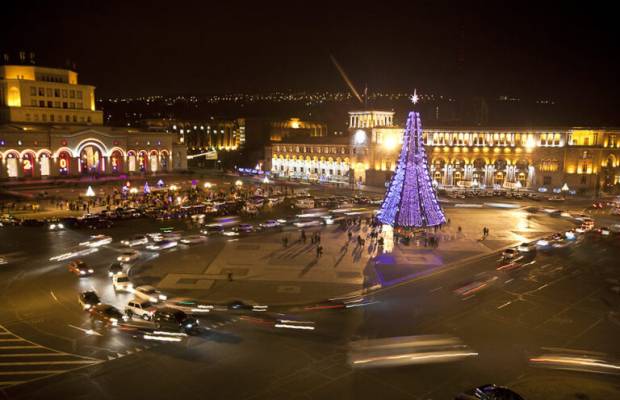
Armenia, among the nations that once comprised the Soviet Union, continues the tradition of celebrating Christmas in January. Notably, this year, the festivities fall on the sixth rather than the seventh. As one of the world's oldest Christian countries, Armenia endured 70 years of Soviet rule during which religious expression was prohibited. Despite this prohibition, the enduring customs of Christmas quickly resurfaced once religious freedom was reinstated. Armenia stands as a unique example, not only as one of the countries celebrating Christmas in January globally but also as a dominant Christian presence in Asia, marking Christmas on the sixth of January, setting it apart from the conventional Orthodox Christmas celebrated on the 6th and 7th of January for Christmas Eve and Christmas Day, respectively.
In conclusion, the diverse traditions surrounding Christmas across the globe showcase a rich tapestry of cultural and religious expressions. From the revival of Orthodox celebrations in post-Soviet nations like Russia and Armenia to the unique customs in Egypt, Ukraine, Ethiopia, Kazakhstan, Georgia, Macedonia, Moldova, Montenegro, and beyond, each country adds its distinct flavor to the festive season. Whether it's the Alilo procession in Georgia or the blending of New Year and Christmas traditions in Moldova, the global celebration of Christmas in January demonstrates the resilience and adaptability of traditions in the face of historical and cultural influences.
